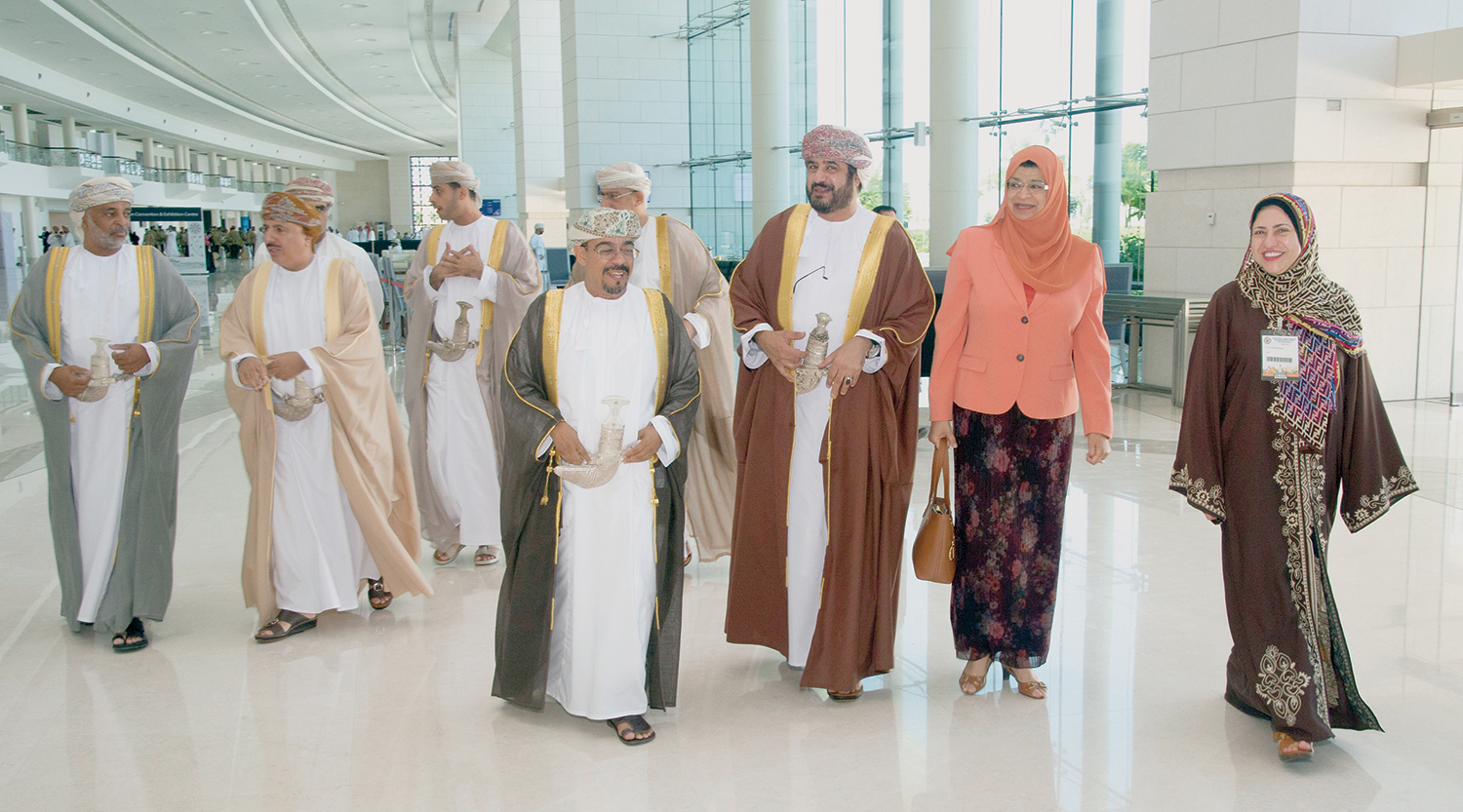

MUSCAT, June 4 - The recent ‘Linking Oman’s Higher Education Institutions with Public and Private Sectors’ event, organised by the Office of Deputy Vice-Chancellor for Postgraduate Studies and Research, Sultan Qaboos University (SQU), was held at the Oman Convention and Exhibition Centre from May 7-9. The event was intended to strengthen links between higher education institutions and public and private sectors in Oman. The article considers why such events are important to the future development of Oman.
The innovative event provided valuable opportunities for participants and attendees from the public and private sectors to increase their awareness of the academic, research and community work of SQU and other higher education institutions and for university representatives to find out more about the need of the public and private sector so that academic and research programmes can be targeted to these.
Through the use of information booths, workshops and training events, it provided an opportunity for SQU and other higher education institutions to showcase their capabilities, projects and services to a wide range of stakeholders including academics from Oman and overseas, public and private sector representatives, students and prospective students, job-seekers and others.
Attendees were provided with information, knowledge and an insight into how the higher education sector might play a role in helping them to achieve their own personal or work-related goals.
Globally, collaboration between higher educational institutions and the public and private sectors has been shown to be significantly associated with economic and social development. The World Bank reports that, on average, the contribution of human capital to the overall wealth of a country is 62 per cent, considerably more than natural or produced forms of capital. Further, the returns to education are increasing over time, and the returns from higher education are the greatest. Researchers have established that levels of education or “knowledge capital” now explain most of the differences in growth rates between countries.
His Majesty Sultan Qaboos has always recognised the important role of human resources in the sustainable future development of Oman, and has supported a major expansion of education and training at all levels. Oman’s Vision 2020 as well as the Ninth Five-Year Plan (2016-2020), which set high standards for the future prosperity and social progress in Oman, both have a strong emphasis on education and training, and on the provision of employment opportunities for Oman’s youth. Much has already been achieved in the expansion of Oman’s higher education sector and its ability to deliver graduates with the skills needed to drive economic development.
In this context, SQU plays a pivotal role as Oman’s leading higher education institution, and has gained an excellent reputation both nationally and internationally for the standards of its research and teaching. Since its establishment in 1986, SQU has been highly focused on the development of Oman, and has designed its programmes to target the needs of stakeholders and the community.
If Oman’s higher educational sector is to fulfil its potential in driving economic and social progress, however, closer collaboration with the public and private sectors is essential.
According to research analysts, the recent expansion of higher education in Oman, as in other GCC countries, has not yet reached expectations. One of the main problems appears to be a continuing mismatch between the needs of employers and the current programmes and services provided by universities. While youth unemployment rates remain high, employers in these countries complain that they are unable to find suitable talent to meet their needs. Just as worrying is the finding that Oman and other GCC countries still rank very modestly on global indicators for science, technology and innovation (STI), seen as crucial for effective transformation to a knowledge-based economy.
Overcoming these issues so that Oman’s Vision 2020 of a prosperous and advanced knowledge-based society can become a reality takes more than a highly educated population, however. It requires new mindsets focused on innovation, entrepreneurship, creativity and life-long learning. It also requires a cultural transformation in which all sectors of society work together in pursuit of common goals.
This is why the event “Linking Oman’s Higher Education Institutions with Public and Private Sectors” is so important, and why similar events must be held on a regular basis to sustain and reinforce links between Oman’s universities and representatives of the public and private sectors.
Effective diversification of the economy, the central goal of Vision 2020, can only be achieved if Oman’s universities have a robust understanding and awareness of the human resource needs of employers. They also need to understand and have opportunities to inform the research and innovation needs of employers in all key sectors of the economy. This is particularly important in the case of emerging sectors such as IT, tourism, banking and healthcare, but also in well-established sectors such as hydrocarbons and agriculture.
Regular events such as this are especially important to generate the linkages, partnerships and networks between and within sectors in Oman that will be crucial for sustainable development and progress. They must include SMEs as well as large employers, since small and medium-sized firms play an important role in the development of a country. They are also essential for raising awareness among prospective Omani students and their families of the range of higher educational opportunities available and how these equip students with the types of skills and knowledge that will enable them to contribute to the future development of their country.
(The author is an Associate Professor in the Information Studies Department of the College of Arts & Social Sciences, Sultan Qaboos University.)
Dr Mohammed Nasser al Suqri
Oman Observer is now on the WhatsApp channel. Click here



